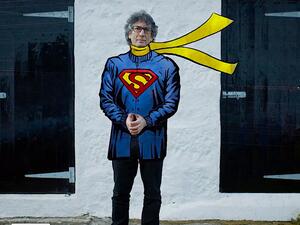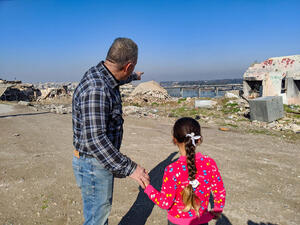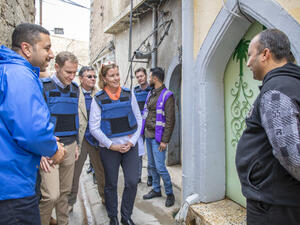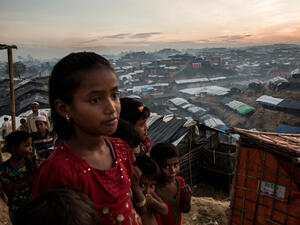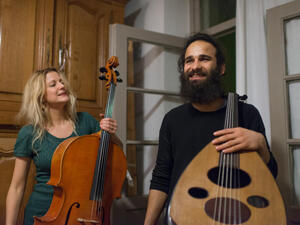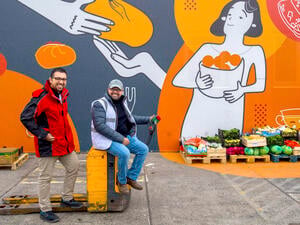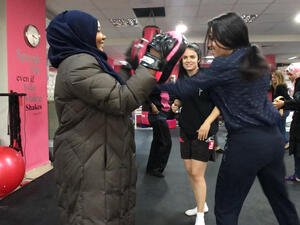UNHCR steps up aid as Yazidis stream into Syria from Iraq's Mount Sinjar
UNHCR steps up aid as Yazidis stream into Syria from Iraq's Mount Sinjar
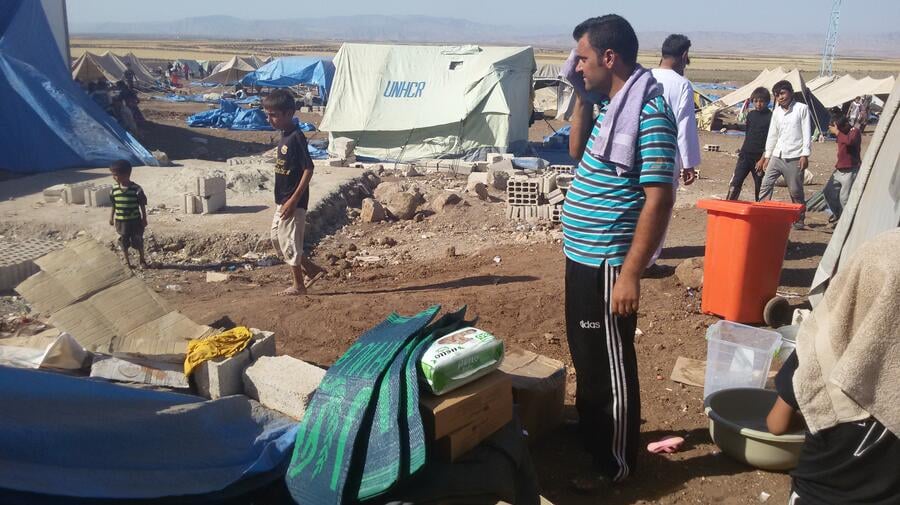
The distribution of tents and non-food aid continues as the population of Newroz camp grows as more and more Yazidis arrive from Mount Sinjar in Iraq.
QAMISHLY, Syria, August 14 (UNHCR) - As members of Iraq's threatened Yazidi community continue to flow into Syria from northern Iraq, UNHCR has begun providing aid and transporting new arrivals from the mountainous border area to the Newroz camp some 60 kilometres to the west.
Tens of thousands of mainly Yazidi people have fled to Syria since militants captured Sinjar and other northern Iraq towns in early August. Most have crossed back quickly, via the Semalka/Peshkabour border crossing, into the relative safety of Iraq's Kurdistan region. An increasing number of Yazidis (an estimated 15,000) are seeking refuge in Syria, where UNHCR is working with local NGOs and UN partners to provide aid.
One UNHCR staff member in Newroz described the situation as a "humanitarian tragedy" and said "people arrive in the camp extremely weak, thirsty, traumatized, especially women and children." Their feet are covered in blisters, having spent days on Mount Sinjar in searing temperatures without food, water or shelter after fleeing for their lives, then walking many hours - in some cases days - to find safety.
"I have not seen a happy or smiling child," said the UNHCR worker, after touring Newroz. "None of the kids were playing or trying to hold your hand, give you a smile like other kids normally do. They were all walking aimlessly, either barefoot or just wearing sad faces . . . it was heartbreaking."
UNHCR said it was working round-the-clock to respond to the humanitarian emergency. "The Yazidi situation remains a very dynamic and challenging one, and it's of life-saving importance that people receive help and protection," said UN High Commissioner for Refugees António Guterres. "We are doing all we can in very difficult circumstances to meet the urgent needs."
The refugee agency has rushed tents, plastic sheets, blankets, hygiene kits and other household items to the Newroz camp from its stockpiles in north-east Syria's Al Hassakeh province, where it has had a field presence since 2010 helping various waves of displaced people. More aid is on the way, including an airlift of 2,000 tents and 5,000 mattresses in the coming days.
UNHCR has begun transporting Yazidis from the border to Newroz at the request of local camp managers and the refugees themselves. A fleet of 20 trucks on Tuesday and Wednesday brought some 5,000 to the camp, which is located near the city of Qamishly. New arrivals tell aid workers about their grave concerns for others of their community weakened from days on the mountain and the long walk to safety.
The Newroz camp is currently hosting about 15,000 Yazidis from Iraq; hundreds more are staying in nearby villages and towns around Qahtaniyyeh and Ras Al Ain. After a few days at the camp, many refugees make their way to Dohuk province in Iraq's Kurdistan region to reunite with family.
Many refugee families have been separated, scattered between Sinjar, Syria and the Kurdistan region of Iraq; some children have been separated from their parents in the chaos. Many refugees say they had to leave behind older people whom they could not carry. Others who made it safely to Newroz backed reports of young girls and women forced to stay behind and being sold. Families say that their young men were killed.
The local communities in Syria have warmly welcomed the refugees, the UNHCR staff member said in Newroz. The hosts have "cooked hot meals in their homes and were transporting them and distributing [aid] to the people as acts of goodwill and kindness," she said. Locals had also donated clothes to people unable to change for days or wearing rags.
UNHCR is coordinating the UN response in Syria to the Yazidi refugee crisis, which is rapidly scaling up. A joint UN mission was carried out on Tuesday, bringing shelter and household items, ready to eat food, high energy biscuits, children's summer clothes and soap, provided by UNHCR, the World Food Programme and the UN Children's Fund (UNICEF).

